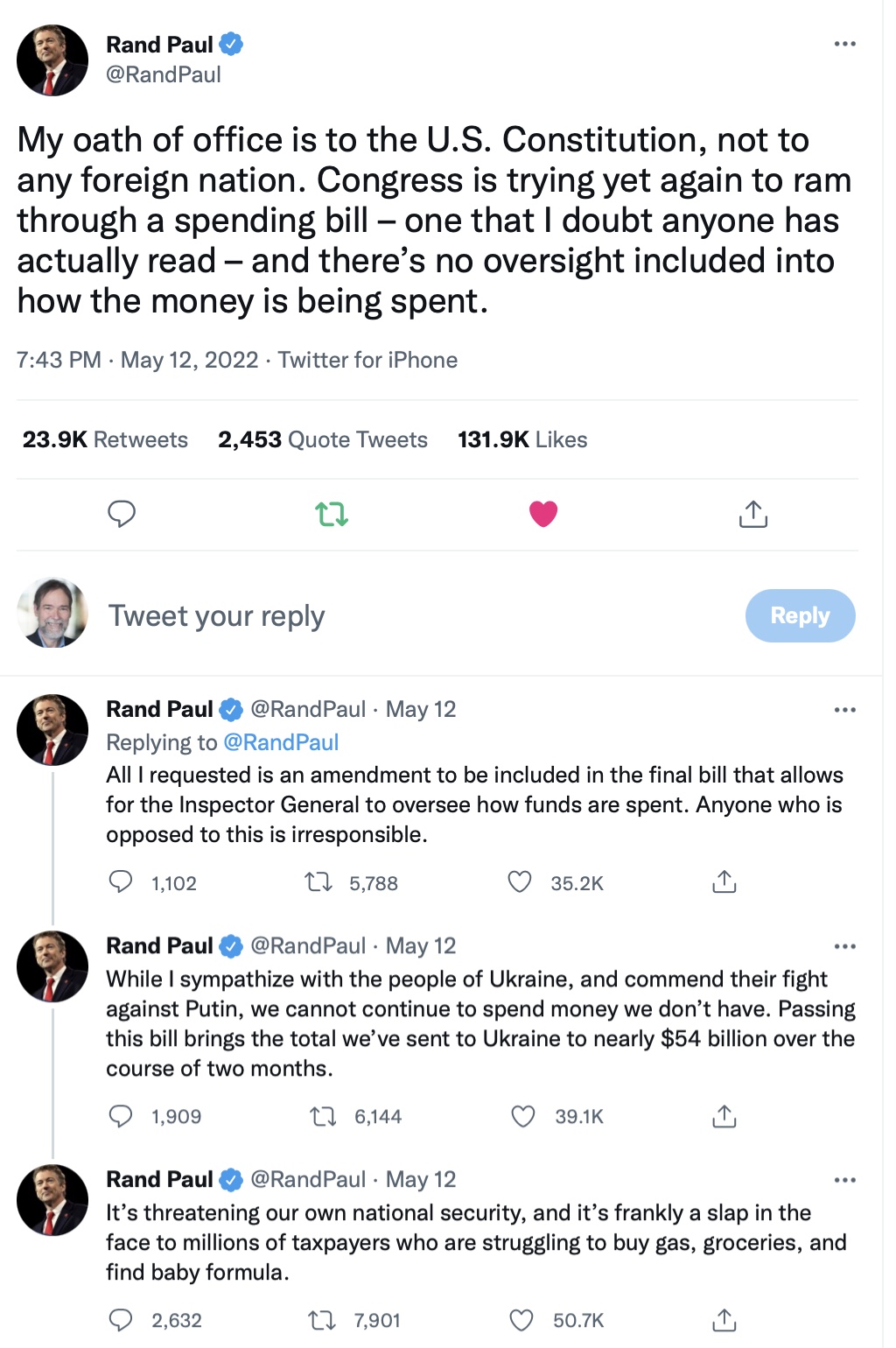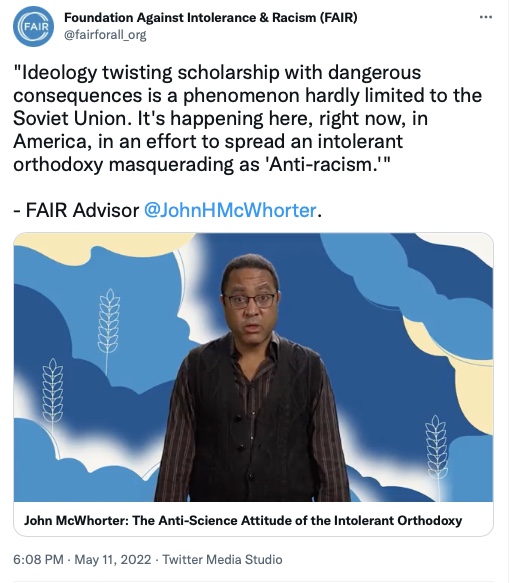Congress is Pollyannaish on War
Who could possibly be against financial oversight? And what about additional oversight into how this mountain of weapons will be used next year or five years from now, and against whom? At a time of skyrocketing inflation, Congress wants to spend money that we will be forced to borrow or print out of thin air based on sloganeering, but it is afraid to ask hard questions in public. If I took out a car loan today, I would be asked a hell of a lot more questions then Congress is asking itself.
Over this century, we have a clear track record for coddling our military contractors, pouring weapons and military into conflicts that have little to do with American interests in the absence of any metric of success, eventually slinking out of that shattered country, having depleted our treasury, thereby permanently losing opportunities to address the needs of our own citizens. Has anyone considered how angry we were when we (falsely) accused the Russians of offering bounty for the killing of US troops in Afghanistan? Our leaders are now bragging that they were instrumental in killing a dozen Russian Generals and sinking a Russian warship. Why would we not think that there will be blowback to this, perhaps in the form of Russian funding of terrorist acts against the US or in the form of nuclear annihilation? Why won't Congress discuss any of these issues in public?



